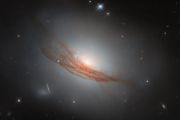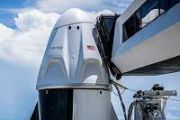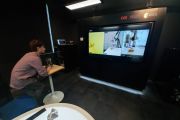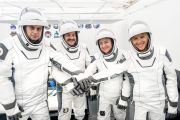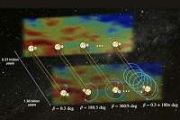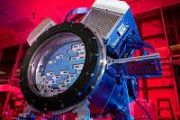
Copernical Team
Rocket Lab opens engine development center in Long Beach
 Rocket Lab USA, Inc. (Nasdaq: RKLB) has officially opened the Company's new Engine Development Center in Long Beach, California. The 144,000+ square foot advanced manufacturing complex will support the high-rate production of Rocket Lab's 3D printed Rutherford engine, as well development and production for the new Archimedes engine that will power the Company's new medium-lift rocket, Neutron.
Rocket Lab USA, Inc. (Nasdaq: RKLB) has officially opened the Company's new Engine Development Center in Long Beach, California. The 144,000+ square foot advanced manufacturing complex will support the high-rate production of Rocket Lab's 3D printed Rutherford engine, as well development and production for the new Archimedes engine that will power the Company's new medium-lift rocket, Neutron. Iran hits back at Britain over satellite launch
 Iran on Wednesday condemned Britain for criticising the Islamic republic over the launch of its latest military satellite into orbit.
The Islamic republic announced last week the "successful" launch of the Noor-3 imaging satellite by its three-stage Qassed rocket, in the latest display of its aerospace technology.
Western nations have repeatedly warned against such activity, saying the
Iran on Wednesday condemned Britain for criticising the Islamic republic over the launch of its latest military satellite into orbit.
The Islamic republic announced last week the "successful" launch of the Noor-3 imaging satellite by its three-stage Qassed rocket, in the latest display of its aerospace technology.
Western nations have repeatedly warned against such activity, saying the E-Space demos novel LEO space capabilities during Space Force field test
 E-Space, the company bridging Earth and space to enable hyper-scaled deployments of Internet of Things (IoT) solutions and services, has completed its U.S. Department of Defense contract with its successful demonstration of innovative space system capabilities to members of the Space Development Agency, a division of the United States Space Force.
The demonstration, which occurred at the N
E-Space, the company bridging Earth and space to enable hyper-scaled deployments of Internet of Things (IoT) solutions and services, has completed its U.S. Department of Defense contract with its successful demonstration of innovative space system capabilities to members of the Space Development Agency, a division of the United States Space Force.
The demonstration, which occurred at the N Week in images: 02-06 October 2023

Week in images: 02-06 October 2023
Discover our week through the lens
Open doors for the ESA-ESRIN Open Day
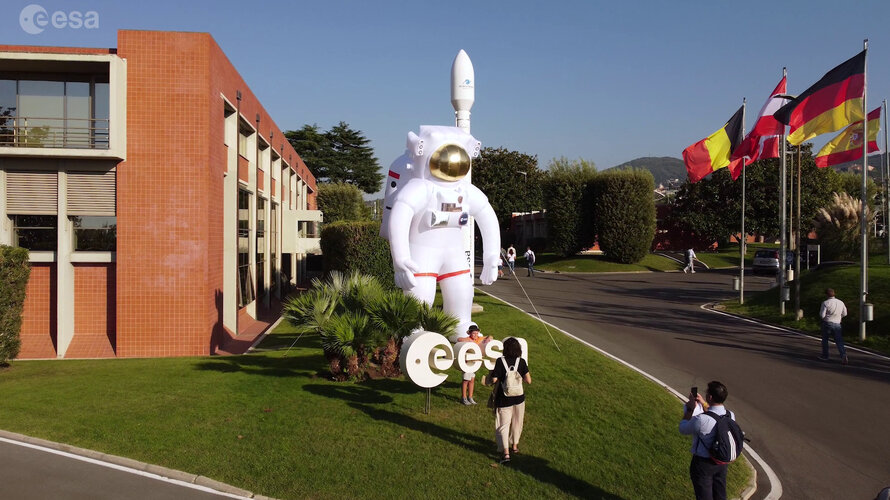 Video:
00:05:59
Video:
00:05:59
On Friday 29 September, the European Space Agency opened the doors of the ESA Centre for Earth Observation, ESRIN, to host the ESA Open Day in the framework of the European Researchers' Night. With a full program of presentations, interviews, interactive games, hands-on workshops and various activities, more than 1400 people, among adults and children, had the opportunity to deepen their knowledge of the activities and programs in which ESA is involved every day.
Earth from Space: Nueva Vizcaya, Philippines
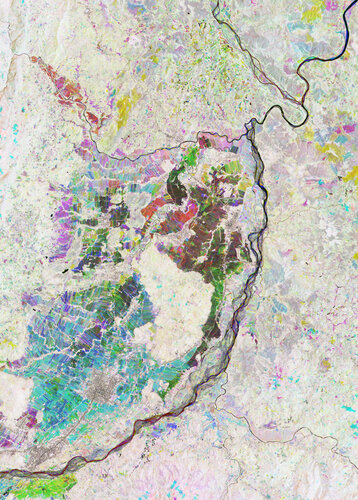 Image:
The heart of the Nueva Vizcaya Province on Luzon, the largest and most populated island of the Philippines, shows up brightly in this Copernicus Sentinel-2 false-colour image.
Image:
The heart of the Nueva Vizcaya Province on Luzon, the largest and most populated island of the Philippines, shows up brightly in this Copernicus Sentinel-2 false-colour image. ESA Impact 2023 – Quarter 3

ESA Impact 2023 – Quarter 3
Welcome to this edition of ESA Impact, an interactive publication covering stories and images from the third quarter of 2023.
Hypergravity odyssey of Earth’s tiniest plant
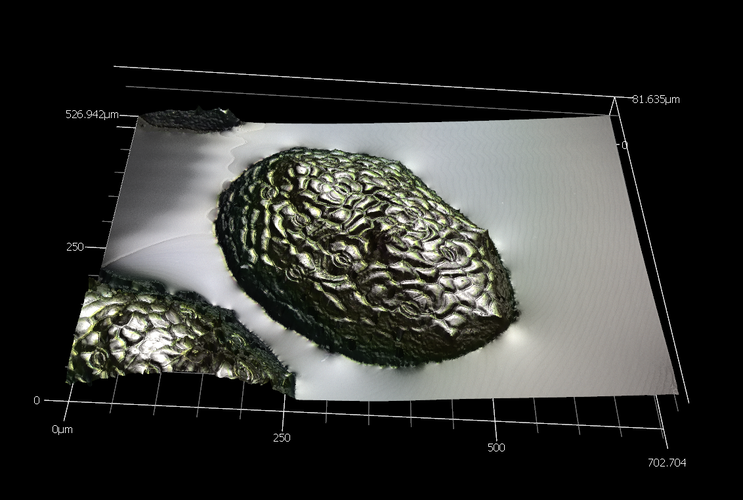
The smallest flowering plant on Earth might become a nutritious foodstuff for astronauts in the future, as well as a highly efficient source of oxygen. To help test their suitability for space, floating clumps of watermeal – individually the size of pinheads – were subjected to 20 times normal Earth gravity aboard ESA’s Large Diameter Centrifuge by a team from Mahidol University in Thailand.
Shoebox-sized space labs being launched by Vega
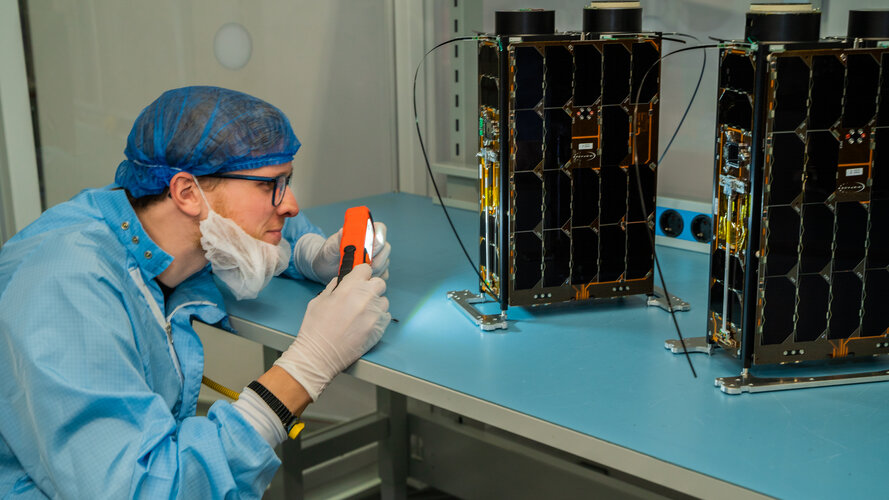
Among the smallest passengers aboard Europe’s Vega launch tonight are also the most ambitious in nature: twin miniaturised laboratories, or CubeSats, for the in-orbit demonstration of disruptive state-of-the-art space technologies.
Harmonizing satnav for aviation: SBAS experts meet
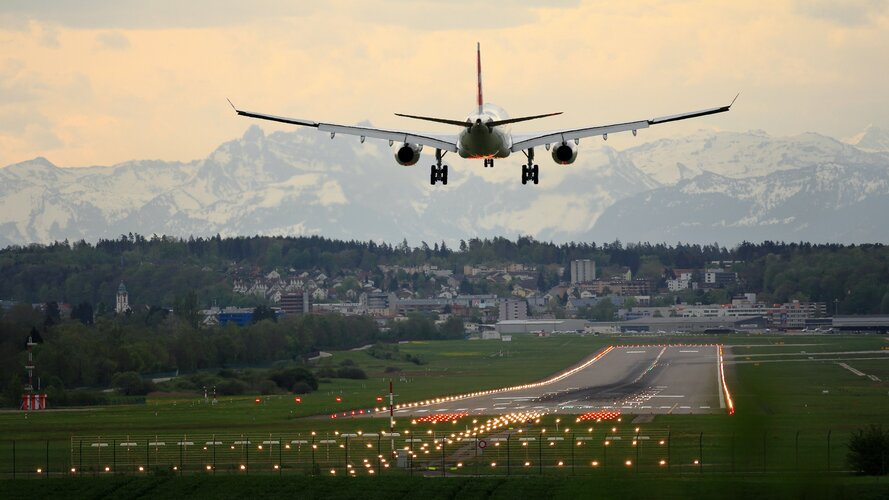
More than 150 000 aircraft and 5000 airports worldwide are equipped with Satellite-based Augmentation System (SBAS) technology for safer flying. Specialists overseeing these systems met from 19 to 21 September for the 38th SBAS Interoperability Working Group meeting, hosted by ESA in Toulouse, to coordinate efforts for seamless navigation.


















